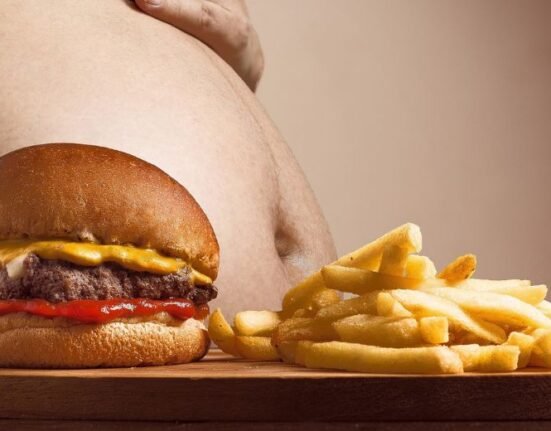Study links Ultra-processed foods with psychosocial problems in adolescents/Image by Freepik
HQ Team
May 25, 2023: Teenagers that overindulge in ultra-processed foods and drinks are likely to suffer from mental health difficulties, according to research carried out by the Institute of Environmental Science and Technology of the Universitat Autònoma de Barcelona
(ICTA-UAB) and the Girona Biomedical Research Institute (IDIBGI). Their study subjects were five hundred Spanish adolescents aged between 13 and 18.
Over-processed foods are characterized by their low nutrient content, saturated fats and added sugars, and additives that make them very attractive, tasty and addictive.
The Faculty of Medicine and the Institut de Neurociències, both at the UAB, and the Barcelona Public Health Agency were also involved in the study and the team of researchers analysed the relationship between the intake of ultra-processed foods and psychosocial difficulties – such as low mood, feelings of anxiety, attention problems – and other behavioural symptoms. Factors such as daily consumption of fruit and vegetables and the weekly physical activity of the participants were also kept into account.
Ultra-processed food effect
The research showed a direct association between high consumption of ultra-processed foods and beverages, emotional distress and behavioural problems. Most common difficulty reported by the adolescent participants was low mood.
Adolescents reported an average consumption of 7.7 ultra-processed foods on the previous day, with higher consumption among teenage boys (8.6 ultra-processed foods for boys compared to 7 ultra-processed foods for girls). Most participants reported consuming sausages, biscuits and processed meats (50-60%), chocolate products, snacks, chocolate drinks and sauces (40-50%), and flavoured yoghurts, processed breads and pastries, sugary cereals, soft drinks, packaged fruit juices and processed crisps (30-40%).
Adolescents reported an average consumption of 1.93 fruits and vegetables servings per day, far from the recommended five servings per day, and reported physical activity on an average of 2.9 days per week. While consumption of fruit and vegetables was higher among adolescent girls (2 servings compared to 1.7 servings for boys), boys reported higher levels of physical activity (3.6 days compared to 2.3 days for girls).
Moreover, 26.2% of the participants presented some kind of psychosocial problem, 33.9% reported depression or anxiety, 9.5% related to attention problems, and 3.9% revealed behavioural problems. By gender, girls showed greater psychosocial problems in all areas (26.4% vs. 22.2%), especially in relation to low mood and feelings of anxiety, except for behavioural problems which were similar between the sexes.
“The association between the consumption of ultra-processed foods and mood and anxiety problems in adolescents is consistent with previous studies carried out on similar samples”, explains Pietro Tonini, ICTA-UAB researcher and first author of the study together with Marta Reales from IDIBGI.
Psychosocial problems
The relationship between ultra-processed products and psychosocial problems is more marked among adolescent boys; this could be due to the hypothesis that they consume a greater amount of certain types of ultra-processed products, such as sugary and sweetened beverages (soft and energy drinks and packaged fruit juices) and processed meats, as well as the fact that they eat less fruit and vegetables.”
A longitudinal study by the National Heart, Lung and Blood Institute (NHLBI)of 3000 young adults over 15 years found that overindulgence in fast food could result in developing insulin resistance. The study, published in The Lancet, observed that subjects who ate at fast-food restaurants more than twice a week compared with those who did so less than once a week had gained an extra 10 pounds and had a two-fold increase in insulin resistance, a risk factor for type 2 diabetes.







